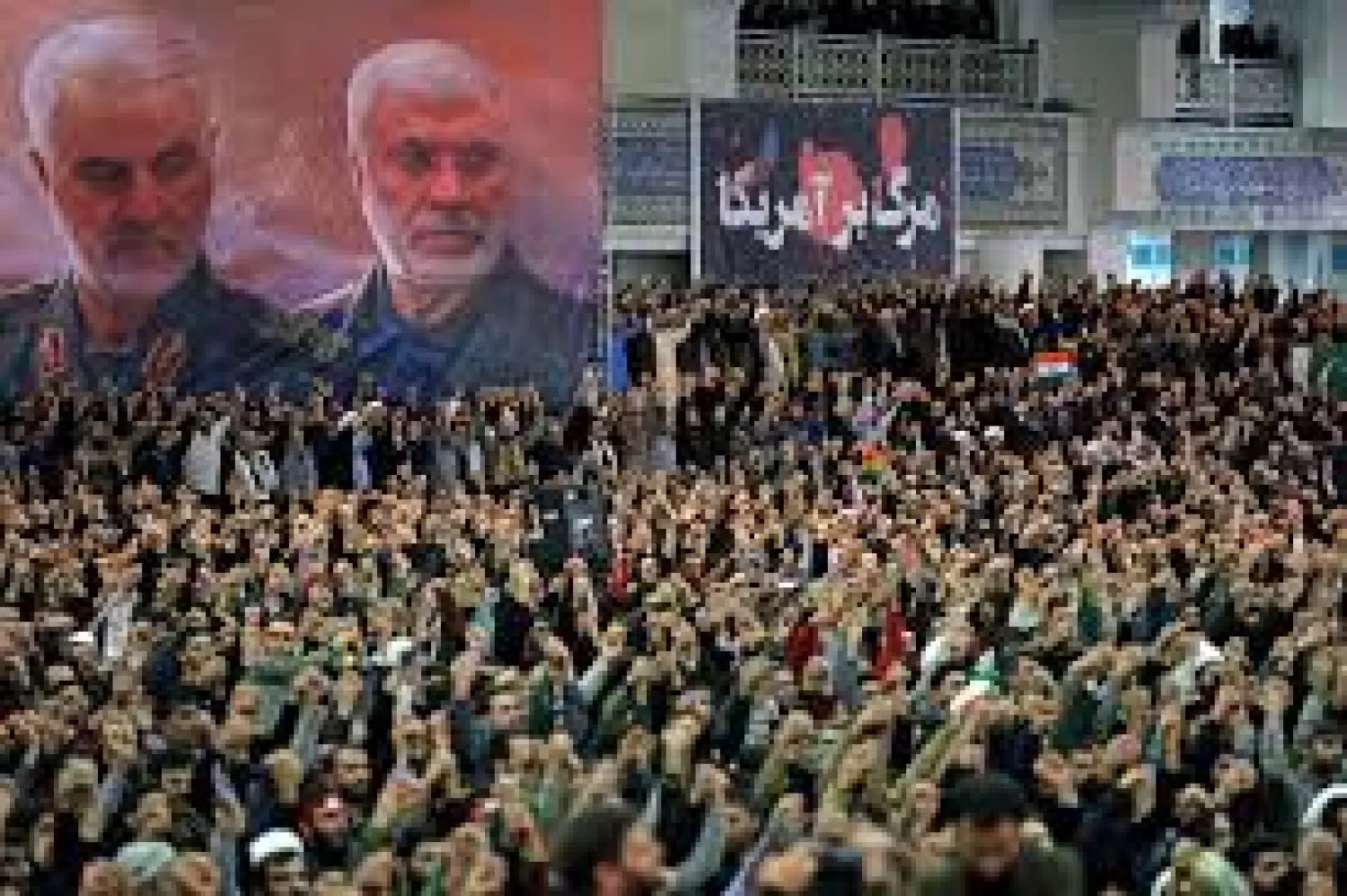Iran's supreme leader says his nation is living through "days of God."
The Islamic Republic has been reeling from one crisis to another, from the targeted killing by the United States of its top general to the Revolutionary Guard's accidental shootdown of a passenger plane carrying scores of young people, most of them Iranians. US sanctions have crippled its economy as tensions with America have soared.
In a rare Friday sermon in Tehran, Ayatollah Ali Khamenei stuck to the playbook Iran has relied on since 1979, blaming the country's woes on the US and other Western powers, and proclaiming that Iranians still support the Revolution.
He pointed to the outpouring of grief after Gen. Qassem Soleimani, Iran's top general, was killed in a US airstrike in Baghdad. Hundreds of thousands of Iranians attended funeral services across the country for Soleimani, who was revered by many as a war hero. But the funeral itself was marred by tragedy when 56 people died in a stampede of mourners in Soleimani's hometown of Kerman.
The moment of national unity was shattered days later, when Iranian forces accidentally shot down a Ukrainian jetliner, killing all 176 people on board, and then concealed their responsibility until they were confronted with mounting evidence from Western leaders.
Here's a look at the various crises Iran faces:
US SANCTIONS
After unilaterally withdrawing from Iran's 2015 nuclear agreement with world powers, President Donald Trump began ratcheting up sanctions. The sanctions have exacerbated an economic crisis, sending the local currency into a freefall and wiping away many people's life savings.
The Institute of International Finance, a global association of financial institutions, estimates that Iran´s economy will contract this fiscal year by more than 7%, mostly because of the drop in crude oil exports due to sanctions. The report found that as a result, Iran´s reserves are expected to dip to $73 billion by March, totaling nearly $40 billion in losses over two years.
___
THE DEATH OF SOLEIMANI
As head of the Revolutionary Guard's elite Quds Force, Soleimani was the architect of Iran's regional military operations and its support for armed groups in Lebanon, Syria, Iraq, and Yemen. He was blamed for the killing of hundreds of American soldiers by Iran-backed militias in the years after the 2003 US-led invasion of Iraq. He also helped Syrian President Bashar Assad's forces battle rebels and extremists.
___
THE PLANE TRAGEDY
In response to the killing of Soleimani, Iran launched a wave of ballistic missiles at US bases in Iraq. No one was seriously wounded, though several soldiers were screened for concussions and sent to Germany for medical treatment. As Iran braced for a counterattack, the Revolutionary Guard shot down a passenger plane shortly after it took off from Tehran's international airport last week, mistaking it for a US cruise missile. Most of those killed were Iranians.
Iranian authorities concealed their role for three days, initially blaming a technical failure, until Western leaders said they had mounting evidence that a surface-to-air missile had brought the plane down. Iranian officials have apologized and promised to punish those responsible, but have widespread criticism and international demands to pay compensation to victims' families.
___
STREET PROTESTS
As the economic crisis has worsened, Iran has seen wave after wave of sporadic, leaderless protests. The protests are usually sparked by economic grievances but rapidly escalate into calls to overthrow the Islamic Republic. The demonstrations have often turned violent, and security forces have responded with force. Amnesty International says more than 300 people were killed in protests in November over a hike in gasoline prices when authorities shut down the internet for several days.
The Revolutionary Guard's announcement on Saturday that it was responsible for shooting down the plane sparked days of protests in the streets and on university campuses. Security forces dispersed some of the crowds with tear gas and live ammunition.
___
THE UNRAVELING NUCLEAR DEAL
Iran continued to comply with the nuclear deal despite US sanctions until last summer, when it said it would no longer fully abide with the agreement if it received no economic benefits. Iran began openly breaching certain limits set by the deal, and after the killing of Soleimani said it was no longer bound by any of the agreement's restrictions.
Britain, France, and Germany, which also signed the deal along with China and Russia, have been trying to salvage it. They have searched for a mechanism that would allow them to keep trading with Iran but have been unable to find one that would protect their companies from US sanctions.
Earlier this week, the European nations triggered a dispute mechanism in the nuclear deal in an attempt to bring Iran back into compliance. They say they are committed to saving the agreement, but the dispute process could potentially result in the snapback of international sanctions, further compounding Iran's woes.









